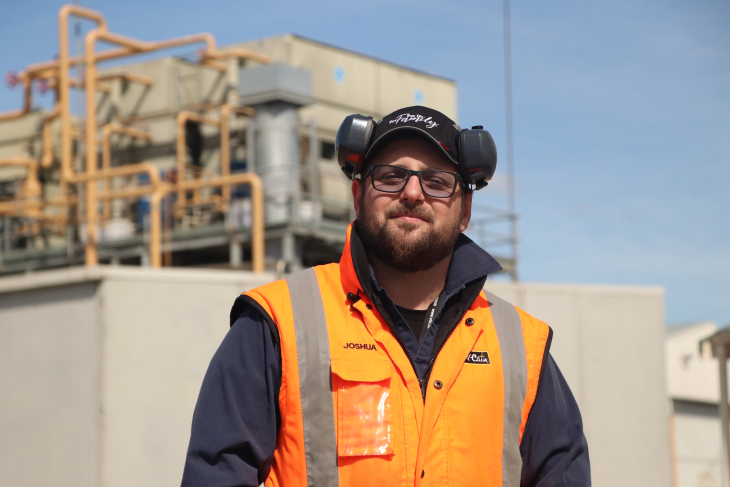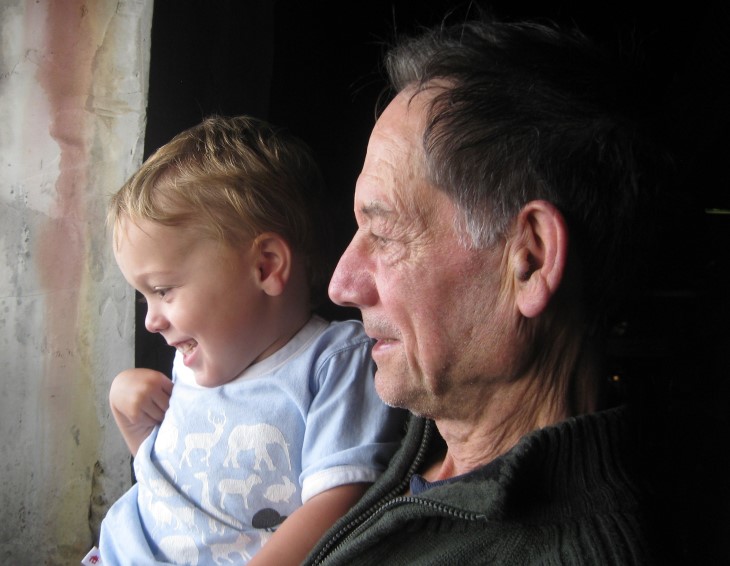Josh’s story: The long road back from concussion
A Timaru factory worker has been through a battle. He wants to share his frustrating recovery following a head injury to help others.
Josh Staats is playing “rumbles” on his lounge floor with his six-year-old daughter Heidi, but he's not quite right.
The light, noise and raucous games are too much. He’s laid low by an incessant headache and fatigue.
“It’s been so frustrating,” he says. “All I wanted over the past two years is to have a normal life. To be able to play with my daughter, to not have constant headaches and tiredness.
“It’s been a battle.” It’s been more than two years since Josh suffered a work-related concussion. He is still not 100 percent.
In March 2020, Josh was working at the McCain Foods’ factory in Timaru as a machine operator. He walked under a piece of machinery and slipped. He caught himself on a railing, but his head hit a moving piece of the machine.
“It smashed me in the back of the head,” he says. He ended up in hospital with concussion.
Josh had some time off work and had expected to be back on the job 12 days later. That day came and went, and Josh stayed home.
“I wasn’t feeling quite right. I was a bit out of sorts. From previous head injuries, I’d figured out that this was not normal, I shouldn’t be feeling like this.”
Josh had to accept he was not ready for a full return. He was still suffering with post-concussion symptoms.
Josh is familiar with concussion. He suffered another blow at work in 2016. It took him over a year to recover from that injury and he’s had many head knocks from playing club rugby.

Addressing work-related concussion
Josh is not alone. In 2021 ACC accepted 1,571 new claims for work-related concussion.
Over the past five years, the average number of days of weekly compensation per year for a work-related concussion was 163.5 days.
In 2021, the two leading causes of work-related concussion were collision / knocked over by an object (30 percent) and loss balance / personal control (25 percent).
Virginia Burton-Konia is the Manager of Workplace Safety at ACC. She says concussion is an ever-present threat in workplaces all over New Zealand.
“We want all New Zealanders to be able to complete their work in safe environments,” she says. “Everyone who goes to work each day should return home to family safe and well.”

Frustration at recovery pace
Josh’s symptoms have included headaches, fatigue and falling asleep all the time. He would feel sick, get irritated over minor things and struggle to understand stuff.
But he’s never lost sight of his goal to return to work full-time.
After seven months, he started working a few hours on three days a week.
He gradually built up his workload and increased his hours to 25 hours a week. It has been an up and down journey.
“I can understand how people get upset with these sorts of injuries, and returning to work,” he says.
“I’ve got a really good team who understands when I’m getting frustrated. You want to keep going when you get to the four-hour mark, but the fatigue is huge – you've got to manage that.”
To help him navigate the path back to work, Josh had the help of medical experts, provided by ACC.

A psychologist helped him accept the changes to his life since the injury.
“He helped me keep my head above water when I was getting down,” says Josh. “Having a psychologist gave me that little extra boost mentally to strengthen my mind. I wasn’t quite where I want to be, but I’ve been given the right tools to get there.
“I loved the fact ACC allowed me to have a psychologist.”
Josh also received help from others. These include an occupational therapist, a physiotherapist, his GP, his manager and workmates.
Warm welcome back
Knowing he was welcome back as he walked through the factory gates was a huge boost.
“Anxiety is a big problem when it comes to injuries, with coming back to work. Because the anxiety is: ‘Are they going to judge me?’ and all that sort of stuff.
“But they were all really inviting - I’m very lucky to have a company that’s come into bat for me on many occasions.
Josh is appreciative that during his months off work, his McCain’s workmates stayed in touch.
"It’s a fast-paced environment in that factory. I know what it’s like when you do 12-hour shifts. You don’t want to message or talk to anybody after work, but they always did.
“It’s the environment you want from your leaders, and your colleagues.”

Managing and Preventing Concussion
Nat Hardaker is an ACC Injury Prevention Partner.
She says managing and preventing concussion is everyone’s responsibility. We all have a different role to play.
“Concussion is an injury that people can’t see,” she says. “We often forget about the injury and assume that the person is doing ok and back to normal. They might not be."
ACC educates New Zealanders on the Four R’s of concussion management. These are: Recognise, Remove, Refer and Recover.
“If you have a suspected concussion, it’s important to be checked by a doctor immediately. You need to be assessed. It's important to get the right treatment. This will help with a graduated and sustained return to work or school and then sport.” says Nat.
She says most people do recover from concussion.
It’s a short-term injury. If the person has good early management and advice this helps to reduce recovery time. It will also minimise the risk of longer-term consequences.

Looking to the future
Away from work, Josh made the tough call to hang up his rugby boots.
“I’d love to jump on a rugby field and pass that ball round again, but the repercussions are too high,” he says.
“People don’t get that. They don’t get what you’re leaving behind with a head injury. It changes you. You’ve got to adapt your mental state, as well, to realise that I’ve got to let go of that, I can’t do that anymore. Even after you’ve finished your recovery process.”
He expects he will have to manage his fatigue for the rest of his life. He says spending time with friends and family is still exhausting.
“Fatigue is a big thing for head injuries. You’re just buggered, and you can hardly sometimes keep yourself awake,” he says.
“You’re sitting there, and you just doze off out of nowhere and you didn’t even know that you fell asleep until you wake up.”
But he describes himself as an “positive person” and he’s looking to the future.
“To get back to where I was at work is my number one goal at the moment. That’s my focus and to get back to being 100 percent present at home for my family.”
The Four R’s of Concussion Management
- Recognise (the signs and symptoms of concussion)
2. Remove (the person from work)
3. Refer (to a medical doctor to confirm diagnosis and provide treatment)
4. Recover (before returning to work)
For information on concussion management:
For information on a Recovery at Work Plan:
Supporting your employee's recovery at work (acc.co.nz)
Josh no longer works at McCain Foods after he moved to Christchurch to be with his family. He is still having issues, but he says: “I am making progress every day”.





